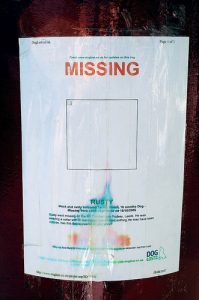
Of all the debates and controversies surrounding the Gospel of Mark, the one I find the most teasing is its absence from the record when it was supposed to be present.
No explicit clues till the mid-second century
There is no explicit hint that it was known to anyone until around 140 c.e. when Justin Martyr spoke of the names of three disciples being changed by divine fiat. It is widely assumed that he is referring to the passage in Mark that speaks of this.
140 c.e. is two generations after the date most New Testament scholars suggest it was composed.
But those scholars who still argue that Mark was the last composed of the canonical gospels appear to be a small minority now. At least one exponent of this late date that I have read seems to have a Church-based confessional interest in arguing this point and maintaining the argument for the primacy of Matthew.
But there is little doubt among most scholars, it seems from the range of literature and discussions I have encountered, that Matthew and Luke knew about Mark’s gospel, and used large chunks of it. Some strongly argue that John’s gospel also shows signs of using Mark. So whatever date we assign for Mark’s first appearance into the world, we need to allow room for the other gospels to follow.
Why the need to reuse Mark?
But why would Matthew and Luke lean so heavily on Mark when they clearly had a different agenda about Jesus, his teaching and his disciples to push? (Here I’m thinking within the parameters of my previous post, Tactics of Religious Innovation.) Mark’s gospel was originally almost certainly “Separationist“. (See also my Jesus nobody post.) Jesus the man was just a man, while the Son of God was a heavenly spirit that entered and possessed that man at baptism, but left him at the crucifixion, presumably reuniting with him in the resurrection.
So why would Matthew and Luke, pioneers of what became the orthodoxy, ever rely so heavily on Mark and bother to re-write him? Why not create alternative “correct” gospels without the taint of such an opposing theological agenda?
Does not heavy reliance on Mark imply that Mark was very well and widely known, and that it had a widespread authoritative status? Does it suggest that the authors of the later gospels felt a need to take on Mark and use his gospel against his theology? Was anything as innovative as a new gospel from scratch so unlikely to take hold that it was simply a non-starter? Was Mark so well established that subtly rewriting it, and expanding on it in ways that subtly overturned its message, the only opening for rival theologians?
But if it were so well grounded as the earliest gospel and for some time the only gospel, how is it we hear nothing of it — and that is only a hint of it — until the mid-second century c.e.?
Matthew or Matthew’s matrix?
Another significant fact is that early church documents show a decided preference for the Gospel of Matthew. But this is an interpretation of the evidence. There is a wealth of evidence for early church documents citing passages that also appear in Matthew.
How can we be sure that these sources really are quoting “our Matthew” rather than a collection of sayings, or that they are not simply drawing on a cloud of sayings in the culture that were later set down in Matthew’s gospel?
Mid second century Justin Martyr speaks of the Memoirs of the Apostles, and the little he speaks of their contents matches material in our canonical gospels. And when he describes the birth of Jesus he comes tantalizingly close to something we read in Matthew’s gospel, but he also even more frustratingly moves away from Matthew’s account and brings in other images from his interpretation of the prophets. In fact, his whole birth narrative is, not unlike Matthew’s, openly drawn from his interpretation of the Old Testament prophets. He does not appear to be citing a gospel or Memoir of an Apostle at all.
The earliest indisputable evidence
The earliest overt evidence we have of Mark’s gospel itself is from the first harmony of the four gospels to have been composed. This was by Tatian, sometime between 160 and 175 it is believed. So when we first see Mark clearly we also see the other canonical gospels at the same time — in a gospel harmony. And this is up to three generations after the gospels are widely assumed to have been composed.
One more question before I go
Now another question. Tatian’s harmony is touted as the earliest gospel harmony. Can we really imagine no widely distributed harmony following the appearance of four varying and contradictory gospels until after the passing of three generations?
It is human nature to establish patterns in what we see. We are creatures that like to tie things together as well as blow them apart. We don’t like leaving loose threads or contradictions hanging. I would think a harmony would be the very next publication to follow any general awareness and overlapping acceptances of four different gospels.
It is generally accepted that Mark was written soon after or around the time of the first Judean rebellion against Rome (around 70 c.e.) — the one led by Simon and John. Is it just barely conceivable that it was rather written soon after or around the time of the second Judean rebellion instead (around 135 c.e.) — the one led by Simon Bar Kochba?
